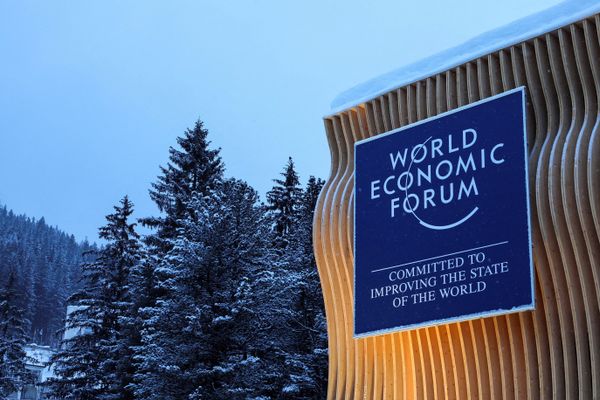DAVOS, Jan 22 — National sovereign wealth fund Khazanah Nasional Bhd is rebalancing its portfolio to invest more in developed markets, with an eye on managing expected risks from the new Donald Trump presidency in the United States (US).
It invests heavily in Malaysia, with domestic investments amounting to 59.1 per cent of its portfolio, followed by North America at 15.5 per cent. The fund invests in sectors ranging from energy and healthcare to information technology and real estate, according to its website.
In an interview at the World Economic Forum's annual gathering in Davos, Khazanah managing director Datuk Amirul Feisal Wan Zahir said the potential for less regulation, lower taxes, cheap energy, inflationary pressures and a strong dollar, due to the Trump administration's expected policies, provided opportunities to invest in developed markets.
"We still need to move into developed markets. We look at the US, Europe, and Japan. The US still is an attractive market," he told the Reuters Global Markets Forum on Monday.
However, Khazanah could face challenges in China. Trump, who was sworn in on Monday, has threatened to slap tariffs of 10 per cent to 60 per cent on Chinese goods.
Amirul added that Khazanah will hold its investments in China and manage its risks, as the country's growing middle-income demographic and vibrant technology sector continues to make it appealing. Investments in China amount to eight per cent of Khazanah's portfolio.
He also said Khazanah was bullish about its investments in India due to good returns in public and private markets.
[caption id="attachment_363279" align="aligncenter" width="1412"] Image for illustration purposes only. — Picture via ADOBE STOCK[/caption]
Image for illustration purposes only. — Picture via ADOBE STOCK[/caption]
Capital returning to Malaysia
Amirul is positive on Malaysia's growth prospects due to increasing foreign direct investments, a solid domestic economy, and higher household spending.
"Malaysia is a bit unique because it is a market people have forgotten for a while, and what we saw in 2024 was a lot more capital flowing back into Malaysia," he said.
While market volatility is expected, Amirul said the Malaysian government's policies will continue to attract foreign direct investment and drive domestic direct investments through Khazanah and the Employees Provident Fund.
Malaysia is fast becoming a haven in Southeast Asia, with foreign investors returning, as improving growth and a stable currency set it apart from peers grappling with political flux and economic uncertainty.
The country received a slew of digital investments from tech firms last year, including Alphabet's Google, Microsoft, and Oracle, helping propel its economy above market expectations in the second and third quarters, and making the ringgit one of Asia's top performing currencies in 2024.
— Reuters
[caption id="attachment_365910" align="aligncenter" width="1427"] A view of the Kuala Lumpur skyline. — Picture via UNSPLASH[/caption]
A view of the Kuala Lumpur skyline. — Picture via UNSPLASH[/caption]




